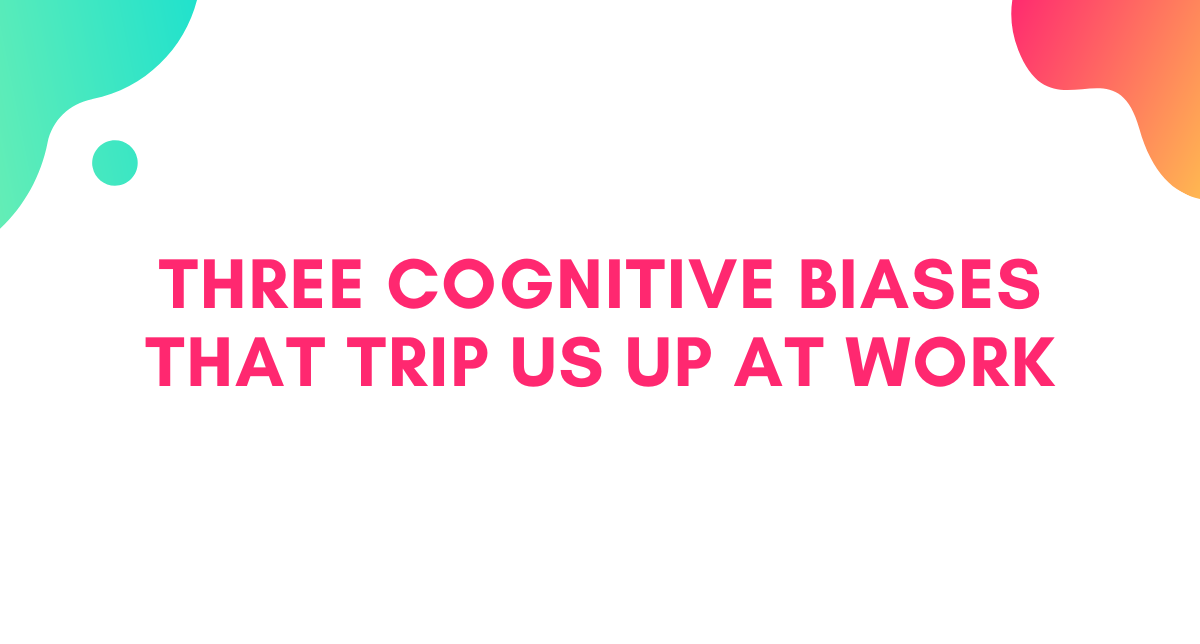From Judgment to Compassion: Why Attribution Matters
Why Attribution Shapes How We See Others
Every day at work, we make snap judgments about people. She’s unreliable. He’s lazy. They don’t care enough. But often, what we interpret as character flaws are really the product of circumstances or systems outside someone’s control.
Psychologists call this the fundamental attribution error: the tendency to explain someone’s behavior by pointing to their personality, while overlooking external factors. And this bias doesn’t just distort our view of others—it erodes compassion and creates toxic workplace dynamics.
A Common Workplace Example
Imagine a colleague who misses a deadline. The quick conclusion? She’s careless.
But zoom out: maybe she’s juggling two departments’ requests, caring for kids at home, or navigating unclear priorities set by leadership.
Now flip the script. When we ourselves miss a deadline, we almost always attribute it to circumstances: The project scope changed. I was waiting on data. I was overcommitted. Rarely do we label ourselves “careless.”
This double standard shows how the attribution error works against others while sparing ourselves.
Why Women of Color Get Hit Harder
Attribution bias doesn’t affect everyone equally. Women of color, in particular, are more likely to have their struggles explained as personal shortcomings: She lacks confidence. She doesn’t trust herself. She’s too perfectionistic.
What gets overlooked are the systemic and structural pressures—gender bias in evaluation, cultural expectations to overdeliver, organizational norms that reward overwork. These forces condition women to hold impossibly high standards for themselves, and yet the story we tell about them often stops at: She’s just insecure.
From Contempt to Compassion
Here’s the problem: when we stick with attribution error, we fall into contempt. We see others as flawed rather than shaped by context. And contempt is not leadership—it blocks connection, trust, and influence.
A more powerful alternative is compassionate leadership. It doesn’t mean excusing poor performance. It means asking: What invisible factors might be shaping this behavior? and How can I support without blame?
A Personal Reflection
I’ve noticed this bias in myself, too. For years, I blamed my tendency to tilt my head or fold my body into angles on “bad posture.”
But eventually I realized it wasn’t just posture—it was years of unconscious behavior shaped by cultural expectations. Like many women, I had internalized the subtle message that we should take up as little space as possible, whether by crossing our legs tightly, angling our bodies, or tilting our heads in ways that signal deference.
Over time, those patterns didn’t just shape how I appeared—they literally shaped my spine. My misalignment was a physical record of gender norms I had absorbed without realizing it.
When I reframed this not as a personal failing but as the imprint of cultural conditioning, everything shifted. Instead of blaming myself, I found compassion. And from that compassion came more motivation to change—not from shame, but from love.
Takeaway: Leading With Awareness
Attribution matters because it shapes whether we judge or connect. When we remember that people are influenced by larger systems—not just personal qualities—we move from frustration to curiosity, from contempt to compassion.
The next time you catch yourself thinking, “She just needs to be more confident” or “He’s lazy,” pause.
Ask instead: What else might be true? What unseen context could explain this?
That simple shift doesn’t just make us fairer leaders—it makes us more human ones.




